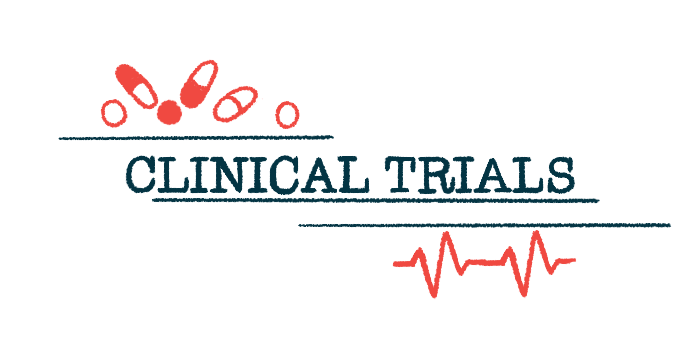Phase 2b trial tests AP01, inhaled pirfenidone, in progressive PF
Formulation may help patients who don’t tolerate oral version
Written by |

Avalyn Pharma has started a Phase 2b clinical trial testing the safety and efficacy of AP01, its investigational inhaled formulation of pirfenidone, in adults with progressive pulmonary fibrosis (PF).
The MIST trial (NCT06329401) is expected to enroll 300 progressive PF patients, who will receive either one of two doses of AP01 or a placebo through a nebulizer twice a day, for about one year. The trial will recruit participants at sites across North America, South America, Europe, and Asia, and is currently recruiting at several U.S. sites.
“This Phase 2b study of AP01 has the potential to bring us closer to providing the option of an inhaled therapeutic that could change patients’ lives,” Martin Kolb, MD, PhD, professor at McMaster University and a primary investigator in the MIST trial, said in a company press release.
Pirfenidone, which is known to block a pro-inflammatory molecule called TGF-beta, has been shown to reduce lung inflammation and scarring (fibrosis), the two PF hallmarks. Oral formulations of pirfenidone, including Roche’s Esbriet and its generics, are approved to slow the progression of idiopathic pulmonary fibrosis (IPF), the most common form of PF with unknown cause. Some studies have reported beneficial effects of oral pirfenidone also in people with progressive PF, which is marked by progressive disease worsening over time.
Given that a significant proportion of patients are intolerant to oral pirfenidone, Avalyn Pharma developed AP01, an inhaled formulation of pirfenidone that, being delivered directly into the lungs and at lower doses, may reduce the risk of whole-body toxicity.
Earlier data ‘robust’
“We are driven by a need to bring forward an effective and tolerable treatment for people suffering with pulmonary fibrosis, many of whom have difficulty tolerating and even need to discontinue existing therapies due to side effects, despite the fatal nature of this disease,” said Kolb.
The Phase 1b ATLAS trial (ACTRN12618001838202) tested two doses of AP01 in 91 adults with IPF who were intolerant to or ineligible for Esbriet or Ofev (nintedanib), another standard PF oral therapy.
Results showed that the high dose (100 mg twice daily) slowed lung function decline and lung fibrosis.
A total of 41 patients who completed the trial enrolled in an open-label extension study AP01-005 (EudraCT 2020-005103-39), in which they and additionally enrolled IPF and progressive PF patients are receiving the high dose for a long period.
Data from both ATLAS and its extension study showed that AP01’s efficacy was slightly higher than that of the oral formulation, and led to fewer side effects. In progressive PF patients, the therapy appeared to show better safety and efficacy than Ofev, the only approved therapy for this patient subgroup.
“We are encouraged by AP01’s robust clinical data generated to date,” said Lyn Baranowski, Avalyn’s CEO.
MIST will test the safety and effectiveness of a low dose and high dose of AP01 against a placebo in people with progressive forms of PF. Participants will receive treatment or a placebo via a nebulizer twice a day for about one year.
The trial’s main goal is to assess changes in forced vital capacity, a measure of lung function. Secondary outcomes include changes in symptoms and their impact on life quality, time to disease progression, and changes in lung fibrosis score based on high-resolution computed tomography.
The study will also evaluate AP01’s safety and tolerability, as well as exploratory efficacy outcomes, including those related to lung function and respiratory hospitalizations.
Participants who complete MIST may then enroll in an extension study in which all will receive AP01.
“My colleagues and I are excited to collaborate with Avalyn on the next phase of the AP01 clinical program as the results from earlier studies showed its promising potential to change the treatment paradigm for pulmonary fibrosis,” Kolb said.






